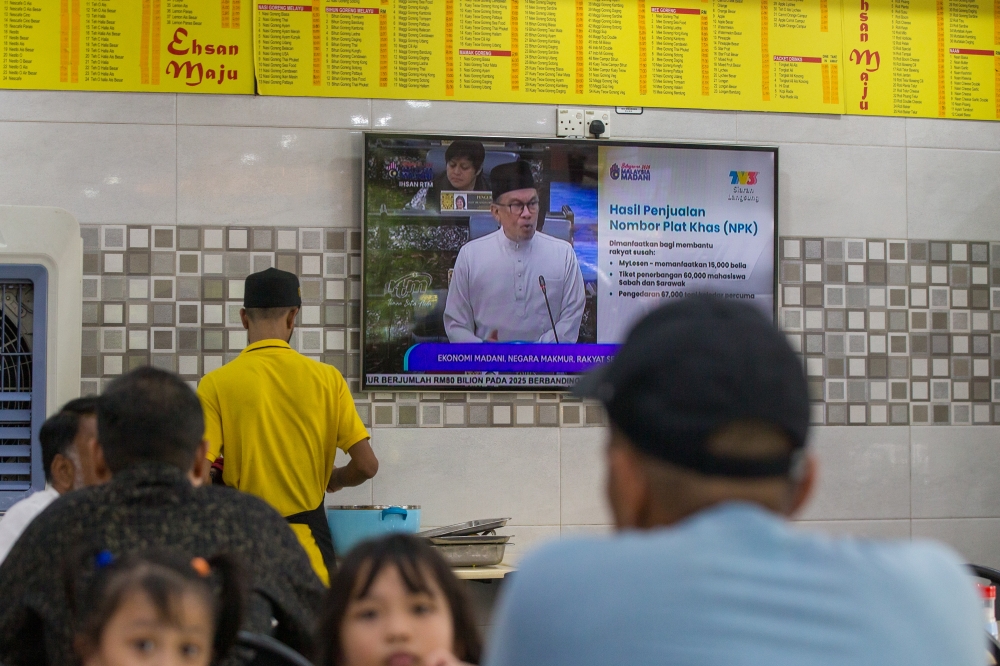OCTOBER 21 — Belanjawan 2025 has laid out several positive initiatives aimed at tackling the challenges young Malaysians face. There’s a clear focus on helping with things like employment, education, and entrepreneurship. But while these efforts are a great start, we need to ask ourselves whether they go deep enough to address the more complicated issues our youth deal with every day.
Minimum wage and the reality of youth debt
I’m genuinely happy to see the minimum wage raised to RM1,700. This is a meaningful step, especially for young people struggling with high living costs. But here’s where things get tricky: with more youth using Buy Now, Pay Later (BNPL) services, their financial landscape is becoming more complicated. This is a generation that lives paycheck to paycheck, with nearly half of them citing financial instability as a major source of stress. Their increasing use of BNPL services highlights the pressure to maintain a lifestyle despite limited financial resources.
Belanjawan 2025’s commitment to regulating BNPL under the Consumer Credit Act is crucial. It’s a positive move to protect young consumers from falling into a cycle of debt. However, we also need to include BNPL in how we calculate household debt, as recommended by the Khazanah Research Institute (KRI). Right now, BNPL isn’t fully captured in our understanding of household financial health, which means we’re potentially underestimating the financial strain many young Malaysians are under. Gen Z is highly digital and has embraced BNPL as a convenient tool, but without adequate financial literacy, it could lead to significant debt burdens. Better regulation and clearer tracking of this debt will help ensure that youth are better protected in the long run.
Job creation and training for the future
One of the highlights of this year’s budget is the tax incentives for universities offering Artificial Intelligence (AI) courses. The idea is to produce skilled graduates who can meet the demands of this growing sector. This is a great move, especially since the tech industry is only going to get bigger.
However, offering tax incentives alone isn’t enough. We need a way to measure the effectiveness of these incentives. Are these AI graduates finding jobs that match their skills? Are these jobs providing stability and growth opportunities? Without tracking how effective these measures are, we might miss the mark on creating long-term job opportunities for youth in high-demand sectors.

Youth and community leadership
Belanjawan 2025 also puts RM25 million into continuing the Rakan Muda program. This investment aims to build up young people’s potential, focusing on their role in community development. This is essential because youth aren’t just the future; they’re part of today’s leadership in their local communities. However, community engagement needs to go further than just participating in programs.
We need to make sure young people have a say in decision-making at the local level. Hyper-local community representation, where youth can participate in councils or local government committees, could create the kind of real, on-the-ground change that’s often lacking. It’s about making sure they’re not just part of the discussion but helping shape the decisions that impact their lives.
Breaking the silos: Ministries need to collaborate
One major issue with youth-related policies is how they’re spread across different ministries. The Ministry of Education, Ministry of Finance, Ministry of Housing—they all play a role in shaping policies that affect young people. But too often, these ministries work in silos, which makes it harder to implement cohesive, effective strategies.
For this budget to truly work for youth, there needs to be stronger collaboration between these ministries. Issues like housing, job creation, and financial literacy can’t be tackled separately. Cross-ministerial collaboration will make sure that the money allocated to youth programs is used efficiently and achieves its intended impact.
Where’s the focus on political engagement?
A survey by Merdeka Center shows that 68 per cent of young Malaysians aren’t interested in politics, and 59 per cent don’t trust politicians. This is a serious issue. If young people aren’t engaged in politics, how can we expect them to shape the country’s future?
Kuasa Orang Muda is trying to change this by encouraging young people to participate in the political process. But efforts like this need more government backing and, more importantly, political will. Policymakers have to create real, practical ways for young people to participate in decision-making. It’s not enough to encourage voting; we need to ensure that youth have opportunities to take active roles in shaping policies and holding leaders accountable.
Belanjawan 2025 is definitely a step in the right direction. But to truly unlock the potential of Malaysia’s youth, we need more than just financial aid or entrepreneurship programs. We need to address the deeper issues of political engagement, financial literacy, and giving youth a real voice in local and national governance. Only then can we create a future where young people are not just participants in the system but active shapers of Malaysia’s growth and success.
* Mastura M. Rashid was previously an advocate for human rights and women’s political participation, and co-founded the Nasi Lemak Project, a social enterprise and youth movement on poverty alleviation.
** This is the personal opinion of the writer or publication and does not necessarily represent the views of Malay Mail.





















